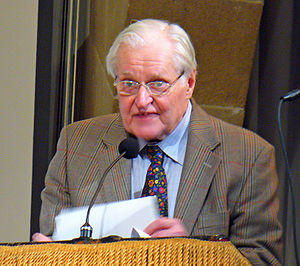This is not my first time reading Idoru, but it is the first time I have read it with an eye toward the techno-orientalist characteristics. Of course, I noticed from a past reading the settings in Tokyo and San Francisco, the cultural and ethnic backgrounds of the characters, and the relatively near-future technological advances (Rei Toei being primary, of course). I had not thought, however, about some of the implications of these qualities of Gibson’s novel. Continue reading “A Brief Response to Idoru”
On the Edge of Vertigo
Again, I find myself drawn to Stewart’s discussions in Poetry and the Fate of the Senses, but this time am finding it more difficult to locate a continuity between this reading and readings from Hoagland’s Real Sofistikashun or Longenbach’s The Poetic Line. Hoagland’s essays, especially, seem to want to break the connections seen in “Facing, Touch, and Vertigo,” while at the same time they are reflexive and recursive. At the same time, Hoagland points to the idea that those poems which become completely disconnected or overly aware of the connection between writer and reader, which invoke complete vertigo, are necessarily less successful.
Intention and Questions
When I write, I struggle to locate myself within a concept of self. If identity is dependent on understanding one’s relationality to all that is around, and writing is dependent on the ego, then must the act of writing assume a defined identity? As I write more, I feel a more concrete definition approaching… a better word might be concept. The concept of self avoids the immutableness implied by definition. It’s fluid, and therefore changeable.
The Reading Awaiting, Pt II
So a couple of days ago I posted about reading I won’t be getting to until at least spring break. That list has a couple of additions I forgot about.
The Robot as Other / The Other as Self-Definition
While I agree that robots are often used to symbolize the “other,” I think we as humans require that “other” to define ourselves as human. We cannot see ourselves unless we can define what we are not (Foucault, Derrida, etc.), but in doing this we often rely on other cultures, languages, or skin colors as the other.
Continue reading “The Robot as Other / The Other as Self-Definition”
The Reading Awaiting
There are a bunch of books sitting beside my bed, and on the bookshelf:
Thoughts on AWP 2011
The AWP conference concluded yesterday evening with several great events. I could only go to one of them, but heard about a couple of the others. I got a lot out of the conference, and for some of my initial thoughts, you can check out the blog entries I did for TriQuarterly Online. I will be posting more of my thoughts here over the next few days, but for now check things out there.
Eric
AWP!!
Leaving for AWP in Washington DC in the morning! Very Excited!
On Submitting Poems
While difficult, I have found that a real deadline reinforced by people I know helps me to at least submit something. I will not say it is not my best work, but of the three poems I submitted today, none have really been through the workshop. Continue reading “On Submitting Poems”
How Nanotechnology (mis)Places Government in The Diamond Age
One thing that intrigued me was the disparate social setups portrayed in Stephenson’s novel. Very quickly, the “traditional” Chinese culture still operated a rudimentary government: developing law, maintaining a civil court system (of a sort) as well as executive functions in the form of police. In a Western trope of the East reaching back to Marco Polo, the executive head remains cloaked in secrecy and indirect. Continue reading “How Nanotechnology (mis)Places Government in The Diamond Age”

